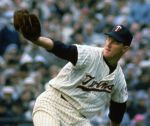April 23, 2021
Flow
 There is a conundrum that is at the base of our fascination with golf. We want to hit the ball better and score lower and to do that we theorize that we need to be in "control", which results in a battle with our mind and body over gaining this elusive "control". But is golf a game that can be controlled? In reality all we can do is regulate our approach to how we play the game.
There is a conundrum that is at the base of our fascination with golf. We want to hit the ball better and score lower and to do that we theorize that we need to be in "control", which results in a battle with our mind and body over gaining this elusive "control". But is golf a game that can be controlled? In reality all we can do is regulate our approach to how we play the game.
Mathematics is a science that has a definitive process (formula) that gives us an absolute response (number). Follow the steps and you will get the right answer. Applied to golf, a formula would be excellent grip, proper athletic posture, fitted clubs, sound swinging motion, good balance and rhythm, and fine finish. However, these admirable attributes don't always give us the desired result. What else need we control?
Psychology or the mental side to golf plays a big role in your ultimate success getting better and enjoying golf. But psychology is not an exact science like math. There are different strategies or approaches for different people and situations. So which one is correct? Bottom line is that it's impossible to "control" all situations and ultimately it's up each individual to find his or her correct path. In advancing forward in a learning environment, it is essential to not be fearful of making mistakes, because it's the mistakes that you make that you will learn the most from.
One thing that we should agree on is that golf is not a game that can be "controlled". We can rein it in, but never dominate it. "To gain control, you must give up control" is sage advice. Ouch, no, never, I have to have control! I can't give up control, I must have structure or everything will vanish and fall apart. But somehow it doesn't. The control we had wasn't control, but a governor or restrictor that was holding you back. So how do you play freely without exercising your desire to control every aspect of the experience?
Mihaly Csikszentmihalyi wrote about achieving a FLOW to your life or sports quest. That Flow can also be a form of "Being in the Zone" when you played exceptionally well. This "Zone" experience comes when all is seemingly right with the world and nothing is interfering with your task at hand, which is to hit the ball to the best of your ability and score as good as possible. Mihaly's Flow is more about embracing the love of doing what is required to accomplish a task. When totally immersed great things can happen, like achieving a Nirvanic state of "Being in the Zone". But his main point is to enjoy the process without controlling the outcome and "going with the flow". This Flow that he describes is the appreciation or fun in doing the mundane knowing you're going down the right path. No consequences, just Flow to where it leads.
 I had an interesting discussion many years ago with Jim Kaat, the tall southpaw Hall of Fame pitcher for the Minnesota Twins and Philadelphia Phillies and few other teams over a twenty-five year career that included another twenty plus years as a broadcaster. Jim also is a scratch golfer and a great story teller. First he talked about playing with Sam Snead a number of times and considered him a friend. Sam told him how he mentally prepared for a tournament. Sam wanted to be relaxed in mind and body that was uncluttered about swing thoughts. The statement that most caught my interest was that Sam consciously wanted his breath and walking stride to have the same cadence as he walked off the first tee be the same as he approached the eighteenth green. I relate that to Sam creating his personalized Flow to his swing and golf game. He kept in the moment and let it go (flow) with the talent that he had. Kaat talked about how he applied the same technique to his pitching. He said he stayed in the moment, kept a level keel, monitored his breathing, had the same pace between pitches, and viewed what he was doing as fun.
I had an interesting discussion many years ago with Jim Kaat, the tall southpaw Hall of Fame pitcher for the Minnesota Twins and Philadelphia Phillies and few other teams over a twenty-five year career that included another twenty plus years as a broadcaster. Jim also is a scratch golfer and a great story teller. First he talked about playing with Sam Snead a number of times and considered him a friend. Sam told him how he mentally prepared for a tournament. Sam wanted to be relaxed in mind and body that was uncluttered about swing thoughts. The statement that most caught my interest was that Sam consciously wanted his breath and walking stride to have the same cadence as he walked off the first tee be the same as he approached the eighteenth green. I relate that to Sam creating his personalized Flow to his swing and golf game. He kept in the moment and let it go (flow) with the talent that he had. Kaat talked about how he applied the same technique to his pitching. He said he stayed in the moment, kept a level keel, monitored his breathing, had the same pace between pitches, and viewed what he was doing as fun.
When I was in college, I played on a very talented USC golf team that was the best in the west and that finished 3rd in the NCAA championship. The top three players were All-American's and I was fourth man on that NCAA team. My teammates won tournaments, but I never did. I figured I didn't try hard enough. So I worked and practiced harder, but it didn't translate to tournaments. At the time, I only knew "try harder". Actually, my game got worse the more I tried. My typical round usually started with me being physically tight and right away being two or three over par after four or five holes. I then relaxed a little and played well getting back to close to par. Now I was back in it and I tried hard again and suddenly I was tight again and made a couple of bogies to ruin my round. Back then I didn't figure out the reason. I would go out to watch the leaders on the course and see what they were doing. Strangely, they looked the same as they looked when we were played practice rounds in Los Angeles. Still I didn't get it. There must have been somethings else. Try harder was still my answer.
Wish I knew then what I know now. Maybe the results would've been different, but I know I would've had a lot more fun and not beaten myself up mentally for not meeting my expectations. All you can do is your best. I thank Dr. Craig Farnsworth for finally showing me the light and giving me some tools to break my habit of trying to be in total in control of my golf game.
The conundrum for golf is you need to do certain things to be proficient at golf. There's the physical aspect that requires proper instruction and practice and then the mental training to play your best. Both require you to control your goals with a structured schedule. That's what you can control. When playing, you have to let go and trust. Scary!!! You are not in control, but you really are. Pretend that you are letting go and embrace the fall. You may, but you might surprise yourself and find a new reality. Everyone's Flow is different, but Flow is enjoyment so it's a safe fun place.



